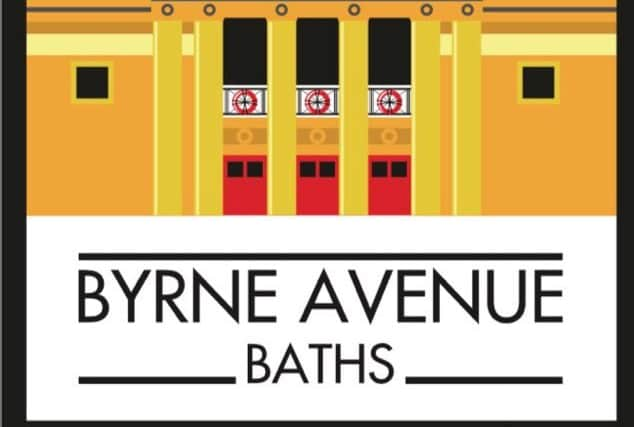Iconic Art Deco swimming baths rescued, reopened and now planning film clubs and food fair
and live on Freeview channel 276
The iconic Byrne Avenue Baths in Wirral, which has been rescued and reopened to the public 12 years after closure, is planning to run film clubs, a food fair and more.
The Rock Ferry landmark was at risk of being demolished in 2009 but was saved by the Byrne Avenue Trust and the listed building opened its doors as a community resource in September.
Advertisement
Hide AdAdvertisement
Hide AdThere are now big plans for its future, with the trust applying for an alcohol licence to run events at the Art Deco-style site.
What’s been said
Ben Harrison, chair of the Byrne Avenue Trust, said: “[We] have applied for a premises licence in order to put on a range of community activities and fundraising events.
“As well as allowing films to be shown as part of two film clubs, the licence will also allow live and recorded music to be played at fitness classes, events and parties.”
Mr Harrison said alcohol was part of the trust’s application.
Advertisement
Hide AdAdvertisement
Hide AdHe added: “The final part of the licence will enable the trust to serve alcohol at private functions, fundraising activities such as a local food fair and ticketed events such as our planned Murder Mystery night.
“As an independent sports and community centre these events will help to cover the running costs of the baths and [subsidise] other community activities.”
Details of the application
The trust’s application will be heard by Wirral Council’s licensing panel at New Brighton’s Floral Pavilion at on Thursday morning.
Byrne Avenue Trust wants to sell alcohol for consumption on and off the premises from Sunday to Thursday between midday and 22:00, and from midday until midnight on Fridays and Saturdays.
Advertisement
Hide AdAdvertisement
Hide AdA licence to show films, host indoor sporting events such as boxing and wrestling, and play music is also being applied for, with the same hours requested.
Thursday’s panel will consider the application, as well as a petition signed by 35 residents which raises concerns about anti-social behaviour and public nuisance that may be caused by customers of the premises, as well as parking issues.
How Byrne Avenue Baths was saved


The listed building was closed in 2009 but was subsequently saved and restored by Birkenhead’s Byrne Avenue Trust.
Ninety years after the foundation stone was laid for Byrne Avenue Baths extensive renovation works for stage one of the restoration project is complete.
Advertisement
Hide AdAdvertisement
Hide AdIt’s been four years since work started to transform the Art Deco style public baths to their former glory.
Byrne Avenue Trust was set up to rescue, restore and re-open Byrne Avenue Baths, which have now been transferred to the trust as a community asset.
What has been renovated and what’s next?
The sports hall and community room are now open with more long-term plans, including a new cafe and the re-opening of the original swimming pool.
They aim to provide a range of sporting opportunities, community activities and social events whilst preserving and promoting the history and heritage of the building.
The next step will be to open up the "Slipper Baths Cafe".
Advertisement
Hide AdAdvertisement
Hide AdThe cafe is situated in the old Gents Slipper Baths, a place where locals used to come and pay a couple of pence to take a hot bath because local houses didn’t have any such facilities. You were given a towel but had to bring your own bubble bath.
Four of the original slipper Baths are still intact and will be a feature of the cafe.
History of Byrne Avenue Baths
The history of the construction dates back to the First World War. Following the end of the war, the Ministry of Labour offered grants to local authorities to engage unskilled men in building works.
By the 1930s, Birkenhead had one of the highest unemployment rates in the country, and many of its residents did not have bathrooms or indoor toilets.
Therefore the advantages of the baths were two-fold, providing jobs and a place for people to keep clean.
Comment Guidelines
National World encourages reader discussion on our stories. User feedback, insights and back-and-forth exchanges add a rich layer of context to reporting. Please review our Community Guidelines before commenting.